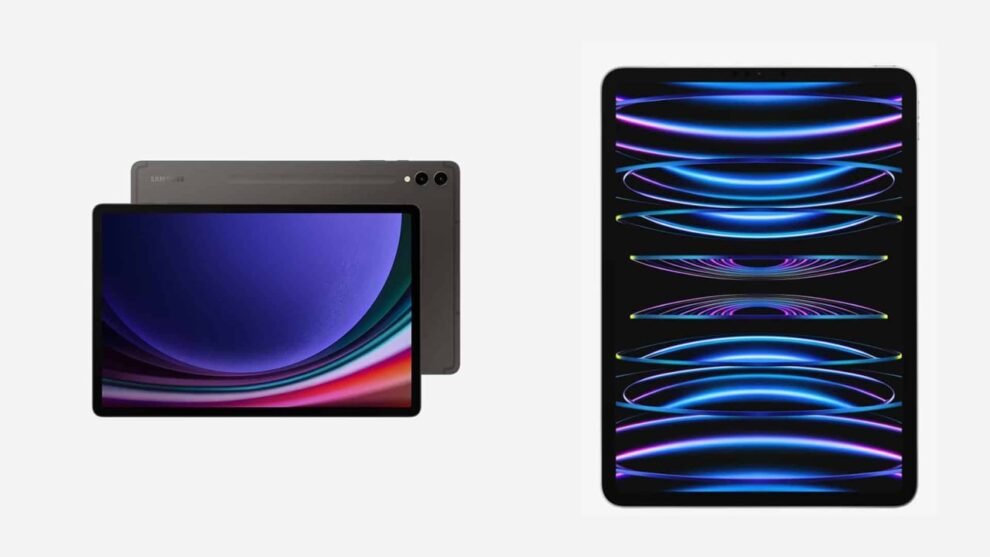The tablet market has been dominated by Apple’s iPad for years, but Samsung has consistently pushed the boundaries with its Galaxy Tab series. Speculations are rife that Samsung’s next tablet may have a groundbreaking feature that could give it a significant edge over the iPad Pro – an OLED display.
What’s the Big Deal About OLED?
OLED (Organic Light-Emitting Diode) displays offer several advantages over traditional LCD displays. They produce deeper blacks, more vibrant colors, and higher contrast ratios, leading to a more immersive viewing experience. Additionally, OLEDs are thinner and more power-efficient than LCDs, which can result in slimmer and longer-lasting devices.
Why is This a Game-Changer?
While OLED displays are common in smartphones, they’re relatively rare in tablets. Apple has long been rumored to be considering OLEDs for its iPad Pro, but Samsung could beat them to the punch. If Samsung’s next tablet does feature an OLED display, it could be a major selling point, especially for users who value image quality and want the best possible viewing experience.
What Else Can We Expect?
Apart from the potential OLED display, other rumors suggest that Samsung’s next tablet could feature a faster processor, improved cameras, and a redesigned S Pen. The company is also expected to focus on software enhancements, particularly for multitasking and productivity, to further differentiate its tablet from the iPad Pro.
When Will it Launch?
Samsung typically unveils its new tablets in the first half of the year. If the company sticks to its usual schedule, we can expect to see the next Galaxy Tab sometime in the spring or early summer of 2024.
The OLED Advantage: A Deep Dive
To understand why an OLED display could be a game-changer for Samsung’s next tablet, let’s delve deeper into the technology and its benefits.
- Superior Image Quality: OLEDs produce true blacks because each pixel emits its own light, and can be turned off completely when displaying black. This results in an infinite contrast ratio, making images and videos appear more realistic and immersive. Colors also appear more vibrant and accurate on OLEDs, as they have a wider color gamut than LCDs.
- Thinner and Lighter Design: OLED panels are thinner and lighter than LCDs, as they don’t require a backlight. This allows for slimmer and more portable devices, which is especially important for tablets that are often used on the go.
- Power Efficiency: OLEDs can be more power-efficient than LCDs, as they only consume power when displaying bright colors or white. This can lead to longer battery life, which is a crucial factor for users who rely on their tablets for extended periods.
Samsung’s Track Record with OLED
Samsung is no stranger to OLED technology. The company has been a leader in OLED display manufacturing for years, and its smartphones are renowned for their stunning OLED screens. Samsung’s expertise in OLED technology could give it a significant advantage in the tablet market, as it can leverage its experience and resources to produce high-quality OLED panels for its tablets.
Potential Challenges for Samsung
While an OLED display could be a major selling point for Samsung’s next tablet, there are also some potential challenges that the company needs to address.
- Cost: OLED displays are generally more expensive to manufacture than LCDs. This could lead to a higher price tag for Samsung’s next tablet, which could deter some potential buyers.
- Burn-in: OLEDs are susceptible to burn-in, which is a permanent image retention that can occur when a static image is displayed for an extended period. Samsung will need to implement measures to mitigate burn-in and ensure the longevity of its OLED panels.
- Competition: Apple is also rumored to be considering OLEDs for its iPad Pro. If Apple launches an OLED iPad Pro before Samsung, it could steal some of Samsung’s thunder.
Beyond the Hardware: Software Enhancements
While an OLED display could be a major differentiator for Samsung’s next tablet, the company also needs to focus on software enhancements to provide a compelling user experience.
- Multitasking: Samsung’s DeX mode allows users to connect their tablet to an external monitor and use it like a desktop computer. The company is expected to further refine DeX and add new features to make multitasking even more seamless and productive.
- Productivity Apps: Samsung has developed a suite of productivity apps, such as Samsung Notes and Samsung Flow, to enhance the tablet experience. The company is likely to continue improving these apps and adding new ones to cater to the needs of professionals and creatives.
- S Pen Integration: The S Pen is a key differentiator for Samsung’s tablets, offering a natural and precise way to interact with the device. Samsung is expected to introduce new S Pen features and enhancements to further improve the user experience.
The Future of Tablets: A Battle of Innovation
The tablet market is evolving rapidly, and the competition between Samsung and Apple is intensifying. Samsung’s potential adoption of OLED displays for its next tablet could be a significant step in its quest to challenge the iPad Pro’s dominance. However, Apple is also expected to introduce new features and technologies to its iPads, keeping the battle for tablet supremacy exciting and dynamic.
Samsung’s next tablet has the potential to be a game-changer, thanks to the rumored OLED display and other enhancements. If Samsung can successfully implement OLED technology and address the associated challenges, it could offer a compelling alternative to the iPad Pro, especially for users who value image quality and want the best possible viewing experience.
The tablet market is ripe for innovation, and Samsung’s next tablet could be a catalyst for change. It will be interesting to see how Apple responds and what new features and technologies it introduces to its iPads. Ultimately, the competition between Samsung and Apple will benefit consumers, as it will drive innovation and lead to better and more advanced tablets.



















Add Comment